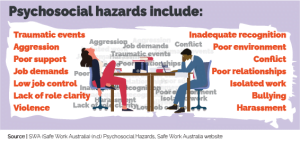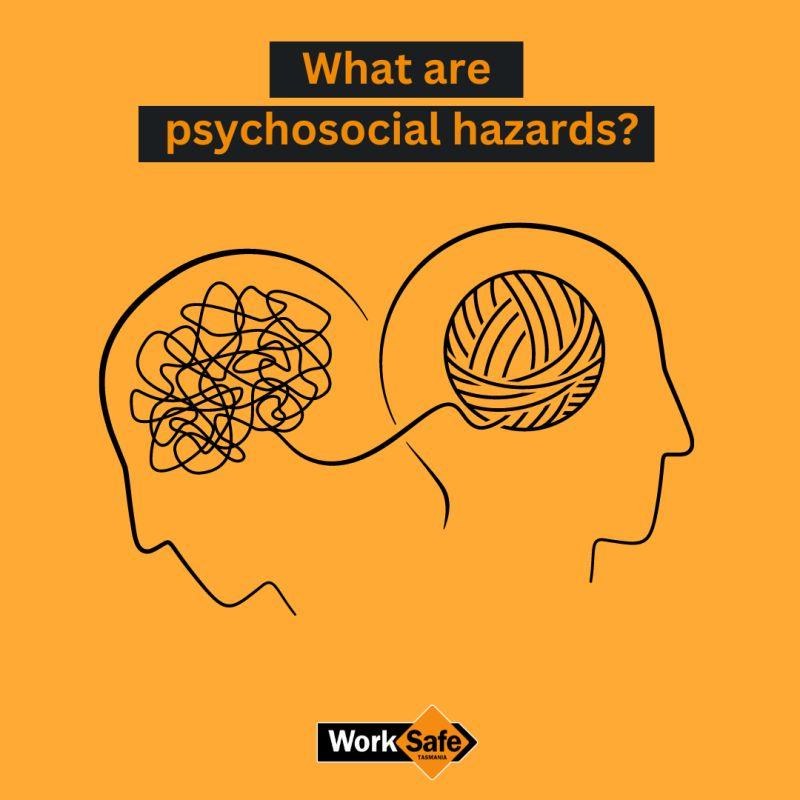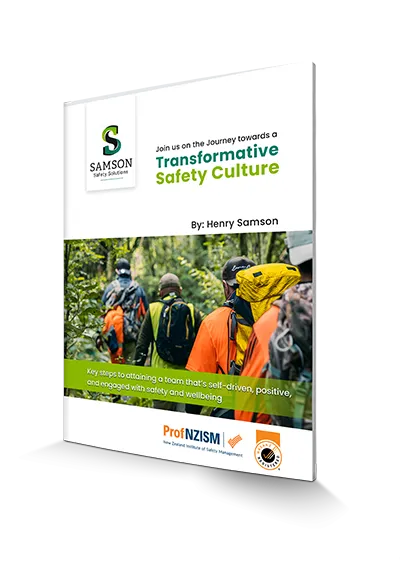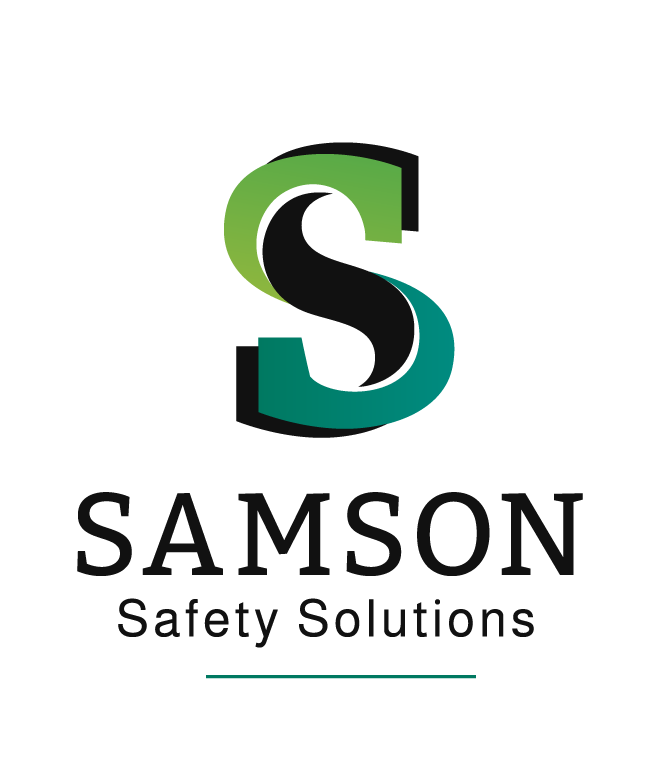Navigating Psychosocial hazards in New Zealand Workplaces
A Comprehensive Guide for Small and Medium Business Owners
Introduction
Welcome to the dynamic world of New Zealand workplaces—a place where innovation, collaboration, and productivity intersect. However, beneath the surface of this bustling environment lies an often-overlooked challenge: psychosocial risks. These intangible hazards, stemming from social, psychological, and organizational factors, can profoundly impact the well-being of employees and the success of businesses. In this comprehensive guide, tailored specifically for small and medium business owners in New Zealand, we’ll delve into the intricacies of psychosocial risks, exploring their nuances and equipping you with effective strategies to mitigate them.

Understanding Psychosocial Risks:
Psychosocial risks encompass a broad range of factors that influence employees’ mental health and psychological well-being in the workplace. These risks can manifest in various forms, including excessive workload, lack of job control, poor social support, and organizational injustice. According to research conducted by WorkSafe New Zealand, psychosocial hazards contribute to increased absenteeism, decreased productivity, and higher turnover rates, underscoring their significant impact on individuals and organizations within the country.
Assessment and Diagnostics:
The journey towards mitigating psychosocial risks begins with a comprehensive assessment and diagnostics of your workplace. Utilize a combination of quantitative and qualitative methods, such as surveys, interviews, and focus groups, to gather insights into employees’ experiences and perceptions. Pay particular attention to indicators such as workload, job satisfaction, work-life balance, and interpersonal relationships. By identifying prevalent stressors and risk factors unique to New Zealand workplaces, businesses can tailor their interventions to address specific needs and challenges effectively.
Training, Coaching, and Leadership Development:
Effective leadership is pivotal in creating a psychologically safe and supportive work environment. Invest in training and coaching programs to enhance managers’ and supervisors’ skills in emotional intelligence, communication, and conflict resolution. Equip leaders with the tools and resources to recognize signs of stress and mental health issues in their teams and provide appropriate support and guidance. By fostering empathetic and inclusive leadership practices, businesses can cultivate a culture of trust, transparency, and psychological safety, mitigating the risk of workplace stress and burnout.
Strategic Planning and Implementation:
Mitigating psychosocial risks requires a strategic and systematic approach that integrates psychological safety into broader health and safety initiatives. Develop a clear plan aligned with your New Zealand-based business objectives and values, outlining specific interventions and timelines for implementation. Consider a range of strategies, including flexible work arrangements, employee assistance programs, and wellness initiatives, tailored to address identified risk factors effectively. Engage employees in the planning and decision-making process to ensure their perspectives and needs are considered, fostering a sense of ownership and commitment to change.
Monitoring and Improvement:
Creating a resilient workplace culture necessitates ongoing monitoring and evaluation of psychosocial risks and their impact on employee well-being and organizational performance. Establish clear metrics and key performance indicators (KPIs) to track progress towards mitigating psychosocial risks and improving safety culture maturity. Regularly review and refine interventions based on feedback from employees, trends in workplace data, and changes in external factors such as industry regulations or market conditions. By fostering a culture of continuous improvement and adaptation, businesses can create a workplace where employees feel valued, supported, and empowered to thrive.

Book a review today


The Outcome
By proactively addressing psychosocial risks, businesses in New Zealand can achieve several key outcomes that contribute to a safer, healthier, and more productive workplace environment
Understanding and Awareness: Increased awareness of psychosocial risks and their impact on employee well-being fosters a culture of openness, dialogue, and support, reducing stigma and promoting early intervention.
Leadership and Communication: Strong leadership and effective communication channels facilitate trust, collaboration, and psychological safety, enabling employees to voice concerns and seek assistance without fear of reprisal.
Employee Wellbeing and Productivity: Prioritizing employee well-being and providing support mechanisms such as counselling, coaching, and wellness programs enhances morale, engagement, and productivity, leading to a more resilient and high-performing workforce.
Safety Culture Maturity: Integrating psychosocial safety into broader health and safety initiatives enhances overall safety culture maturity, driving continuous improvement and innovation, and fostering a workplace where safety is everyone’s responsibility.
Conclusion
In today’s rapidly evolving workplace landscape, addressing psychosocial risks is not just a legal or moral obligation—it’s a strategic imperative for small and medium business owners in New Zealand. By understanding the unique challenges and opportunities within New Zealand workplaces, conducting thorough assessments, implementing targeted interventions, and fostering a culture of continuous improvement, businesses can create a workplace where employees thrive and organizations flourish. So, take the first step towards mitigating psychosocial risks today, and embark on a journey towards building a safer, healthier, and more resilient workplace for all.
Free Health & Safety Review
Review includes an overview of your current systems and suggestions for improvement.

